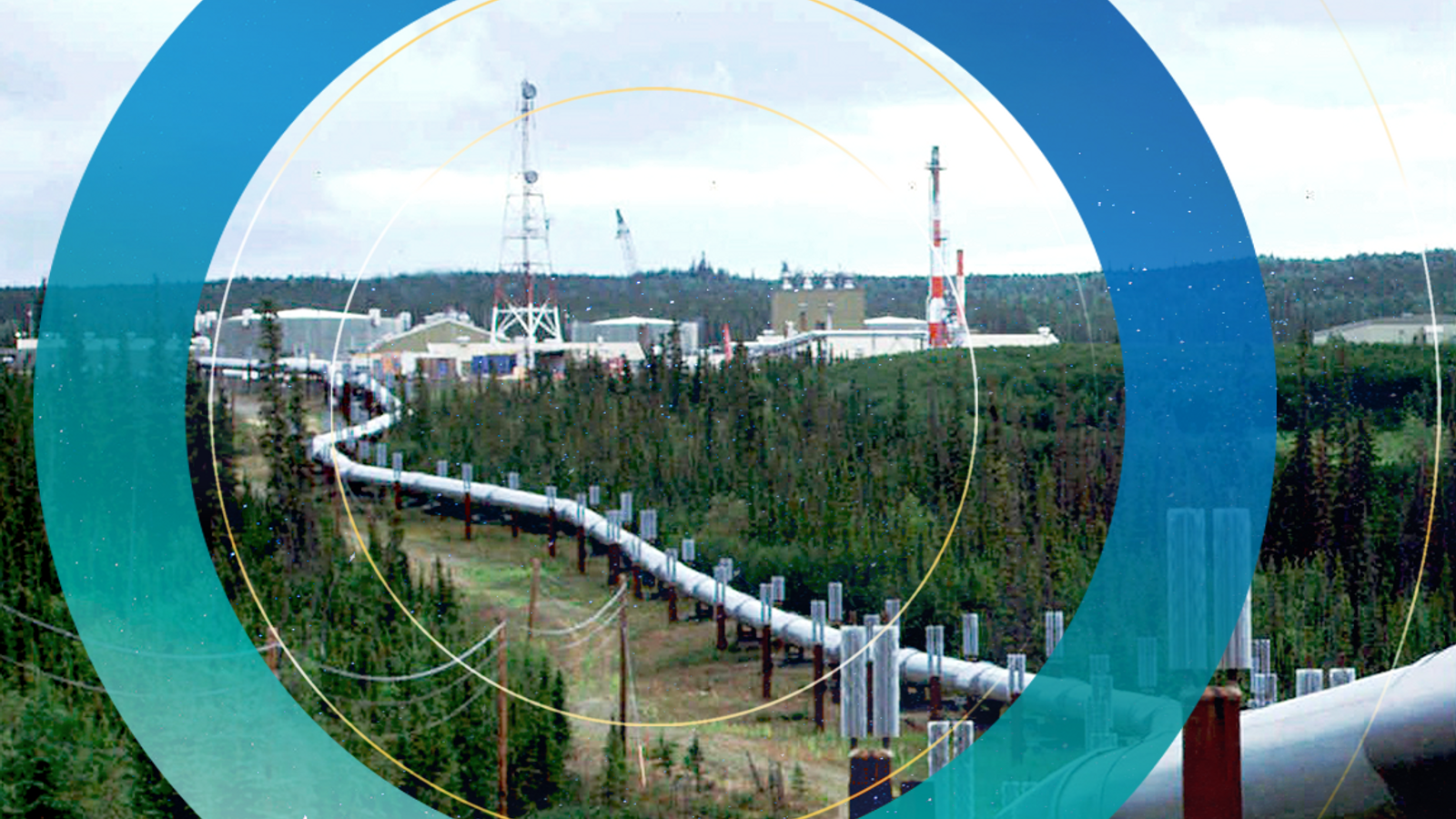One of the world’s largest oil pipelines, the Trans-Alaska Pipeline, is under threat due to thawing permafrost.
Permafrost is ground that has remained completely frozen for at least two years straight and is found under around 85% of the US state.
Over the past few decades, permafrost temperatures there have warmed by as much as -15.83C (3.5F) due to climate change.
The supports holding up an elevated section of the pipeline are now in danger, jeopardising its structure and increasing chances of an oil spill in a delicate and remote landscape, NBC News reports, citing Inside Climate News.
The slope of permafrost where a 246m (810ft) section of the pipeline is secured has started to shift as it thaws.
This is dangerous because it is causing several of the braces holding up the pipeline to twist and bend.
It appears to be the first time that pipeline supports have been damaged by “slope creep” caused by thawing permafrost, according to records and interviews with officials involved with managing the pipeline.
In response, the Alaska Department of Natural Resources has approved the use of some 100 thermosyphons – tubes that suck heat out of permafrost – to keep the frozen slope in place.
This tactic also hopes to prevent further damage to the pipeline’s support structure.
In its November 2020 analysis, the department said: “The proposed project is integral to the protection of the pipeline.”
Please use Chrome browser for a more accessible video player
Carl Weimer, a special projects adviser for Pipeline Safety Trust, said “this is a wake-up call”, as the use of such tubes has never been used as a safeguard once a slope has begun to slide.
“The implications of this speak to the pipeline’s integrity and the effect climate change is having on pipeline safety in general,” he added.
Subscribe to ClimateCast on Spotify, Apple Podcasts, Spreaker
Alaska’s average temperature is predicted to increase two to four degrees more by the middle of the century – with every two-degree increase potentially leading to 1.5 million square miles of permafrost lost to thawing, according to a study in the Nature Climate Change journal.
The Alyeska Pipeline Service, which operates the pipeline, confirmed that thawing permafrost posed a threat when seeking permission in February 2020 to install the thermosyphons on the slope.
“The purpose of this project is to protect the integrity of the Trans-Alaska Pipeline (mainline) from permafrost degradation,” according to the company’s application.
Sky News has launched the first daily prime time news show dedicated to climate change.
The Daily Climate Show is broadcast at 6.30pm and 9.30pm Monday to Friday on Sky News, the Sky News website and app, on YouTube and Twitter.
Hosted by Anna Jones, it follows Sky News correspondents as they investigate how global warming is changing our landscape and how we all live our lives.
The show also highlights solutions to the crisis and how small changes can make a big difference.






















